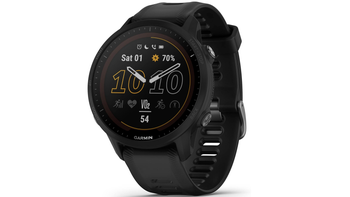Apple Watch lands lead role in a Stanford study focused on arrhythmia in kids age 6+

Popular consumer electronics and academia once again flock together in the search for valuable insights and outcomes. Last time, Samsung announced a collaboration with the University of Michigan; now it’s Apple’s turn to go to Uni.
Researchers at Stanford University are launching a new study focused on how the Apple Watch could help detect arrhythmia in children and young adults (via 9to5Mac). The study is set to take place from November 2023 to December 2024 and has two main objectives:
The study participants include only children aged 6 and above and young adults, as kids aged 5 and below “may not be able to safely use the [Apple] watch and have the developmental ability (as gauged by clinician and parents) to utilize the trigger features on the watch and cardiac rhythm monitor”.
As of today, several of Apple Watch’s heart monitoring features are FDA-approved for irregular heartbeat detection in adults over 22 years old. Through the PAWS (Pediatric Apple Watch Study), Stanford researchers want to know more about the accuracy in children and people aged 21 and below.
The study will consist of equipping 100 children and young adults with an Apple Watch for six months. The researchers will compare the number of arrhythmia events measured by the Apple Watch with events measured with a “standard clinical rhythm monitor”.
As MyHealthyApple puts it, treating children who need arrhythmia monitoring can place a huge financial and time burden on patients and their families. And it can be a painful source of stigma for these children. Being able to use an Apple Watch to passively monitor a child’s heart rate and rhythm from just their wrist would be a game changer for these patients and their families.
Researchers at Stanford University are launching a new study focused on how the Apple Watch could help detect arrhythmia in children and young adults (via 9to5Mac). The study is set to take place from November 2023 to December 2024 and has two main objectives:
- To determine the accuracy of Apple Watch ECG tracing heart rate in children.
- To determine if extended monitoring with the Apple Watch can identify arrhythmia events that were not detected by short-term clinical monitoring.
The study participants include only children aged 6 and above and young adults, as kids aged 5 and below “may not be able to safely use the [Apple] watch and have the developmental ability (as gauged by clinician and parents) to utilize the trigger features on the watch and cardiac rhythm monitor”.
Of course, the study enlists participants who are currently undergoing clinically indicated arrhythmia monitoring; healthy volunteers for the study are not allowed to participate.
As of today, several of Apple Watch’s heart monitoring features are FDA-approved for irregular heartbeat detection in adults over 22 years old. Through the PAWS (Pediatric Apple Watch Study), Stanford researchers want to know more about the accuracy in children and people aged 21 and below.
The study will consist of equipping 100 children and young adults with an Apple Watch for six months. The researchers will compare the number of arrhythmia events measured by the Apple Watch with events measured with a “standard clinical rhythm monitor”.
As MyHealthyApple puts it, treating children who need arrhythmia monitoring can place a huge financial and time burden on patients and their families. And it can be a painful source of stigma for these children. Being able to use an Apple Watch to passively monitor a child’s heart rate and rhythm from just their wrist would be a game changer for these patients and their families.













Things that are NOT allowed: